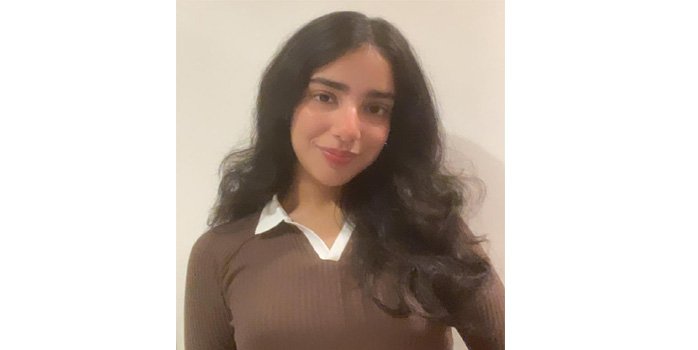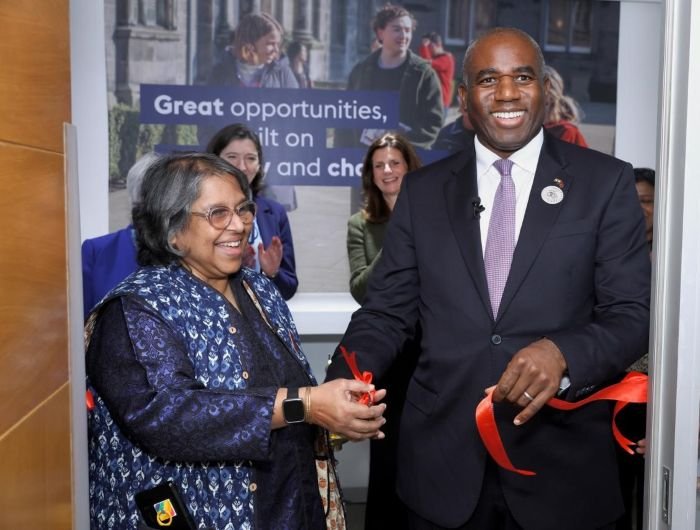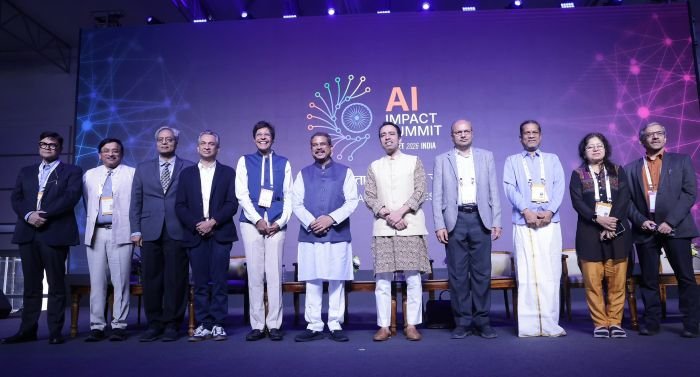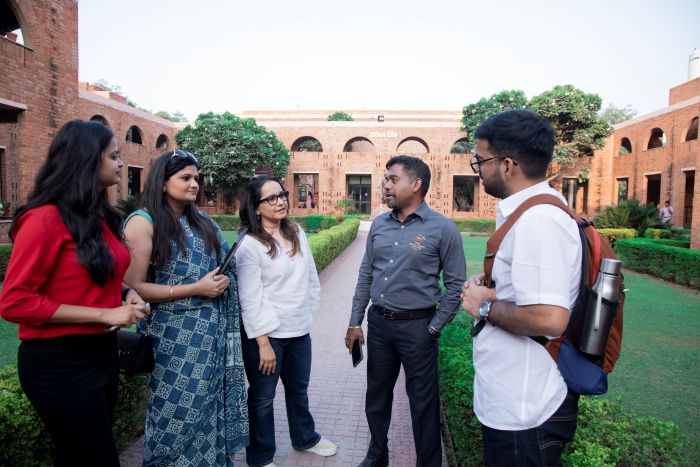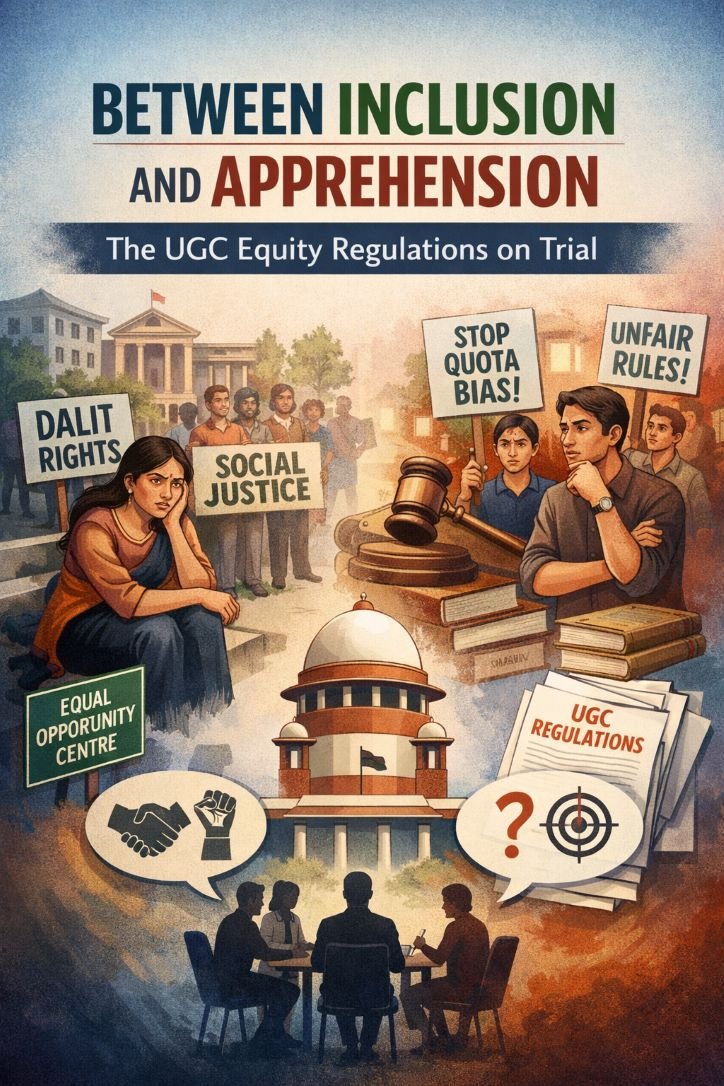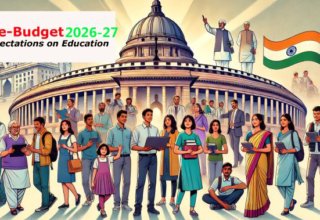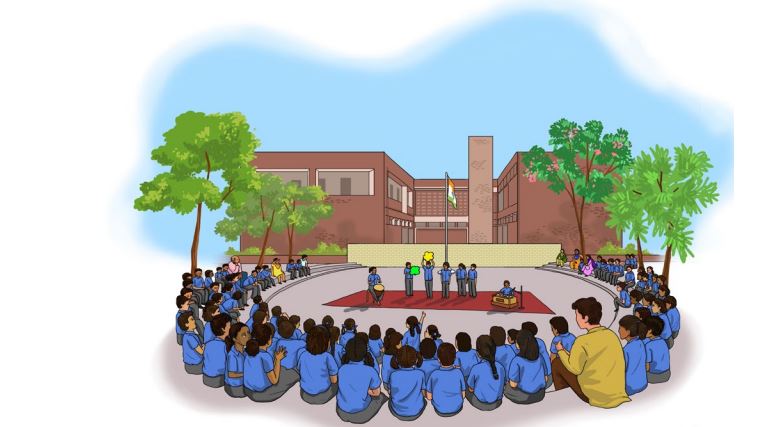
The extensive all-encompassing 628-page draft on expected lines explains the new Curricular Structure of 5+3+3+4 recommended under NEP in nuts and bolts. With an integrated implant of relevant ancient concepts, the draft puts a lot of value on values and dispositions besides putting new life into ancient knowledge practices finds Autar Nehru
The draft NCF 2023, an ‘intimidating to read & analyze’ voluminous document of 628 pages is the most comprehensive school education plan in India’s history till date that goes from talking curricular schemes and structure for textbook preparation to how schools should conduct on ground including the use of symbols and definition of relationships and their outcomes. However, the most radical change in the draft is for the secondary stage, that is, for four years from class 9 to 12. If the draft were to be taken as the final NCF for School education, then once notified the 9-12 four years will look completely different from now.
The Secondary Stage will be divided into two phases—classes 9 & 10 and classes 11 & 12. Humanities (that includes languages), Mathematics & Computing, Vocational Education, Physical Education, Arts, Social Science, Science, and Inter-disciplinary Areas will be eight curricular areas for classes 9 & 10 and to complete Grade 10, students will need to complete two Essential Courses from each of the eight Curricular Areas available i.e., a total of 16 Essential Courses across two years of Grade 9 and 10. Class 10 exam will continue to annual affair in the current format.
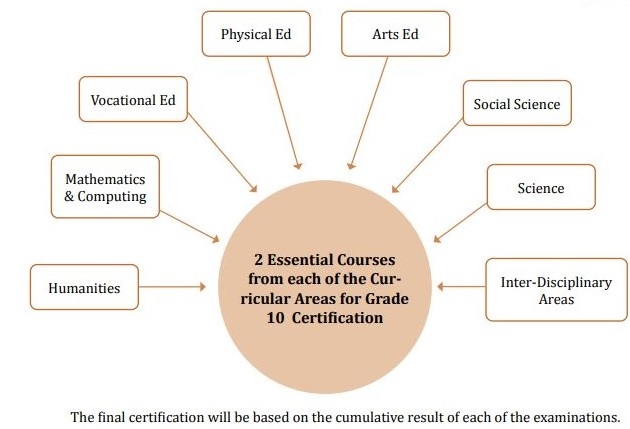
The same set of eight Curricular Areas will continue to be on offer, but choice-based courses will be designed based on the Disciplines within the Curricular Areas to ensure deeper and more rigorous engagement in next phase, that is class 11 & 12. This phase of the Secondary Stage would be divided into semesters and each choice-based course would be for a semester. Students must complete 16 choice-based courses to complete Grade 12. To ensure that the students have adequate breadth, they have to choose Disciplines from at least three Curricular Areas. To ensure depth, when they choose a Discipline, they have to complete four choice-based courses in that Discipline.
The draft says, “All Secondary Schools will need to offer Essential Courses in all the Curricular Areas so that all students are able to complete Grade 10. The design and learning standards for the Essential Courses have been articulated in the NCF. Since the Grade 11 and 12 of the Secondary Stage has a wide range of Disciplines, many schools might struggle to offer this entire range. This in effect limits the choice for the students. To ensure that students have a reasonable choice, Secondary Schools, to begin with, must offer at least one Curricular Area from Humanities or Social Science or Science or Mathematics and Computing; Inter-disciplinary Areas; Arts or Sports or Vocational Education.” Experts are clearly worried that in the name of choice, the move may lead to dilution of standards and not leave student with enough time to develop broad understanding. They are also questioning on the availability of infrastructure and teachers for such a sweeping reform that achieving knowledge in depth and breadth as the key goals.

To enable the objective of making the NCF as relatable to practitioners as possible, eight volumes will follow, of which seven would be on the specific Curricular Areas – Arts and Music, Languages, Math, Science, Social Science and Humanities, Sports, and Vocational Education, and one will be on School Culture and Processes. The volumes that are to follow will have greater details on the specific matters, to enable the implementation of the NCF, and its use by practitioners, from curriculum and textbook developers, to, teachers and assessors. While the NCF-FS is included with this NCF, the NCF-FS document must be considered as another of the detailed volumes, making the set altogether of ten volumes. Earlier in a statement while releasing the draft NCF for School Education for publi feedback, the Ministry of Education in a statement had said,“Given the diverse needs of students, multiple pedagogic approaches, learning-teaching material at the different stages of school education, it is felt important to take feedback from students, parents, teachers, teacher educators, experts, scholars and professionals on the various sections and recommendations of this NCF-School Education (SE). While giving your feedback, it needs to be kept in view that this is a pre-draft of the NCF-SE which is still requires several rounds of discussion within the National Steering Committee. Feedback from diverse stakeholders will further help NSC to look critically into different modalities and approaches that this framework is proposing.”
According to the draft School education should be a wholesome experience for students, and they should acquire capacities and dispositions that keep their bodies and mind healthy. Referring to the NEP 2020, the draft lays emphasis on the goals articulated in the NEP 2020 for the development of an individual who can participate and contribute meaningfully to sustaining and improving the democratic vision of the Indian Constitution, participate in the economy and has impacts on both the individual and the society. The NEP 2020 expect students to have ‘a rootedness and pride in India, and its rich, diverse, ancient and modern culture and knowledge systems and traditions’. They should also acquire capacities and a disposition to contribute meaningfully to culture. The NCF would intend to develop a positive work ethic in students.
“An inclusive and nurturing culture forms the bedrock on which all school activities and pedagogical practices rest, grow, and succeed. Mutual respect, a fear-free environment, and healthy relationships among students and teachers are essential for having dialogue and collaboration. Without these, learning endeavours become a tedious task for everyone involved. Along with a fear-free environment, acting responsibly and showing rigour in studies are equally important characteristics of school environment that contribute to achieving the necessary learning in each grade and stage of schooling,’ says the draft. A set of illustrative Learning Outcomes have been defined in this NCF, based on the broad understanding of the context our education system. These Learning Outcomes need to be seen as enabling guidelines for Teachers and school leaders and not as constraining demands on them. They have the autonomy to reimagine the Learning Outcomes.
The draft writes, “Use of Holistic Progress Cards that detail out student performance in multiple aspects including formative and summative assessments should be explored. Assessments should support in meaningful aggregation/summation of student learning. While the formative function of assessment is critical, the summative function of assessment is equally important. Summative examinations, including certification examinations, continue to be relevant as it serves as a necessary test to understand student’s achievement of Competencies and Learning Outcomes. While the significance of summative exams is well established, what needs immediate attention is the approach to the same. Examinations should move away from testing rote learning skills and instead focus conceptual understanding, application of concepts, problem solving abilities, critical thinking, and other such higher order capacities.”
The draft also recommends a good quality Guidance and Counselling support process in schools over time as it will ensure the following outcomes are achieved at the level of individual students. It lays a lot of emphasis on school leaders, principals and teacher in handholding students. “Teachers, Principals, will be required to continue playing the role of guides and counsellors and should get basic education in this regard so they have the required skills and capacities. However, it is an urgent need that a professional/specialist for Guidance and Counselling at least at the cluster level as suggested in NEP 2020 must be appointed as soon as possible. Also, considering the ground realities of a vast majority of schools across the country, it is important and reasonable to acknowledge that school systems will have their limitations in addressing many challenges that come up concerning Guidance and Counselling. A successful plan for such support would require an understanding of what kinds of challenges School Teachers, Principals can manage to address and what kinds of events or issues they cannot manage themselves but only direct to professionals outside the ambit of the school. However, Schools that have the resources and access to professionals can simply take the lead and follow what NEP 2020 suggests,” says the draft.
Another key recommendation is regarding Virtual Labs and Simulations and schools have been asked to create environments for experiential learning, especially in science and mathematics and makes scarce resources available for all through technology.
As said earlier, the draft NCF is getting down to ground zero in its exercise and touch every aspect of school education system for a holistic experiential change, it recommends an assembly for 25 minutes, and Class time for all subjects is 50 minutes/100 minutes (1 hour 40 minutes) for hands-on work, activities, lab work, and other such pedagogic requirements and a lunch break of 55 minutes. The two working Saturdays a month have a slightly different schedule compared to other working weekdays. There is an ‘Additional Enrichment Period’ (AEP) every evening and on the two working Saturdays after class. This is for students to use as additional time for enrichment in any subject on the curriculum. There is no separate Library time built into the timetable. Students may use time from the AEP on one of the evenings.
Then, parents and families can contribute to the school in several ways – be part of the School Management Committee, participate in celebrations, share knowledge and expertise in specific topics, support Teachers during field trips, and co-teach or observe classes. Parents can also plan and run events in the school like Sports Day or Annual Day. The local community is defined as parents, family, residents of the neighbourhood, youth groups, community leaders, and local governance institutions. The community could be involved in and support the school in several ways. For example, ensure enrolment and regular attendance, mobilise funds for infrastructure and learning materials, organise ingredients for more nutritious meals locally, and so on.
Importantly, the draft recommends that NCTE on priority should do an estimation of Teacher demand and supply building on existing studies related to demand and supply of Teachers for specific Stages. This will help to ensure that the right number and type of universities offer the four-year Integrated Teacher Education Programme (ITEP) with specializations across School Stages. The curriculum for the specializations within the ITEP must be based on the curriculum and pedagogy of the NCF. It must also ensure adequate practice opportunities for student Teachers in all school environments. The Teacher Eligibility Test (TET) should also be extended to all teachers of the Foundational and Secondary Stages once the re-structuring of school stages is complete. NEP 2020 envisages the extension of the TET to cover all stages of education. This certification of suitability to teach will cover teachers across all kinds of schools. Recruitment of teachers must be through a rigorous process comprising not only a written test but also an interview and classroom demonstration, as stated in NEP 2020.
The draft NCF also lays clear emphasis on quality, completeness, and maintenance of infrastructure as it is a key differentiator between a good school and a not-so-good one, especially in the eyes of parents and community. Safe, barrier-free, and adequate physical infrastructure must be available as per prescribed norms. Buildings and equipment must meet safety standards as per the law. Adequate budgets and utilization for infrastructure development, infrastructure maintenance and teaching-learning material must be available. For all this to happen, a supportive ecosystem is essential. This Section describes the kind of ecosystem needed for the implementation of the NCF – availability of adequate infrastructure and resources, criticality of Teachers, the role of Academic and Administrative Functionaries, Parents and Community in making this happen.
Across Stages, students’ continuous engagement with and care of their environment is emphasized. Values related to the environment (e.g., collaboration, respect for diversity) have to be demonstrated by adults in the school so that students develop them as well. As students grow older, they must be encouraged to deepen their environmental knowledge, assess issues, show initiative, creativity, perseverance, and problem-solving skills for environmental action.
A few ancient Indian principles referred to in the NCF
Importance of memory
The ancient Indian emphasis on Smriti (memory) is critical to learning and development. It has often been misunderstood as an emphasis on rote learning, which in principle and when practised with fidelity, it was not. Current cognitive science research indicates that Smriti (memory) – both working memory and long-term memory – plays an important role in cognition and comprehension. Insufficient emphasis on memory often results in inadequate outcomes in the classroom. When we use memory inappropriately, we are ignoring its powers and capacities. Using memory for learning in the classroom encompasses a variety of activities – deliberate and regular practice, deep processing, generating cues, making connections, and forming associations
Importance of Practice Learning is a time-consuming process. Organized, regular and steady practice yields steady and positive impact on learning. Practicing helps to internalize information; access more complex information stored in long-term memory and apply knowledge or skills automatically. Across curricular areas, differences in students’ performance are affected by how much they engage in deliberate practice. Deliberate practice is not the same as rote repetition.
Deliberate practice involves attention, rehearsal and repetition and leads to new knowledge or skills that can later be developed into more complex knowledge and skills. When a skill becomes automatic, attention and mental resources can be freed up for higher level thinking and reasoning. Most Teachers are aware of two contradictory facts – drill can be boring, and yet practice is the only way for their students to master certain procedures. The problem with drill comes when we assume that it will substitute for understanding. Concepts and procedures are two different things, both of which students need to learn. Practice alone cannot lead to conceptual knowledge and understanding alone cannot lead to mastery of a procedure.
Importance of Questioning
We have a long and ancient tradition of questioning in India. Debate and discussion have always been held as a critical part of the Indian knowledge tradition. The Upanishads were written in response to the questions of shishyas. The literal meaning of the word Upanishad is the sitting down (of the shishya) near (the guru). The usual method of argument utilized reason and went from simple to complex, from concrete to abstract, from known to unknown. In the Katha Upanishad, is the powerful story of Nachiketa, a young boy, who dared to ask Yama, the lord of death, a very simple but fundamental question: ‘Is there life after death, or is death the end?’
The debates between Adi Shankara and Mandana Misra, for example, are legendary. Thousands of scholars gathered every day to watch and learn from them. This debate between two luminaries throws light on the healthy competition that existed among followers of different philosophies. They had open minds and the immense courage to test their faith, to question their beliefs, and to change their philosophies, if reason demanded the change. Through this process, it was always important to remain accepting towards new concepts, experiments, or questionings.
Some values are developed better through particular processes, illustratively, i. Regular dialogue and discussion with active listening as part of classroom culture and processes will help develop democratic values (e.g., pluralism, equality, justice, fraternity).
Pramanas
Thinking about knowledge, on how does one know, and what are the true sources of knowledge has been a philosophical preoccupation for Ancient Indians.
The following six pramanas were considered as valid means through which one can gain knowledge about the world:
- Pratyaksa: This is usually interpreted as direct perception through the five senses. It can be further divided into anubhava (direct perception) or smriti (remembered perception).
- Anumana: Using inferences to come to new conclusions from observations is one another way of coming to know.
- Upamana: Knowing through analogy and comparison is upamana. Relating to existing knowledge and identifying the similarities and differences and thus coming to know new things or experiences is another valid way of knowing.
- Arthapatti: Knowing through circumstantial implication is arthapatti.
- Anupalabdi: Perception of non-existence is considered a valid form of knowledge. To observe that the well is empty of water is knowing something about the well. People have come to significant conclusions because “the dogs did not bark that night”!
- Sabda: In some systems of knowledge the testimony of an expert is admissible as true knowledge. That an individual can only directly know a fraction of all reality through direct experience and inferences but must rely on other experts was acknowledged thousands of years ago! These different pramanas were recognized as valid or invalid sources of knowledge by different philosophical systems of Ancient India. These ancient investigations of the nature of knowledge are still relevant for education. By having a deeper grasp of the nature of knowledge teachers are better equipped to select appropriate content, pedagogy, and assessments to achieve the aims of education.


